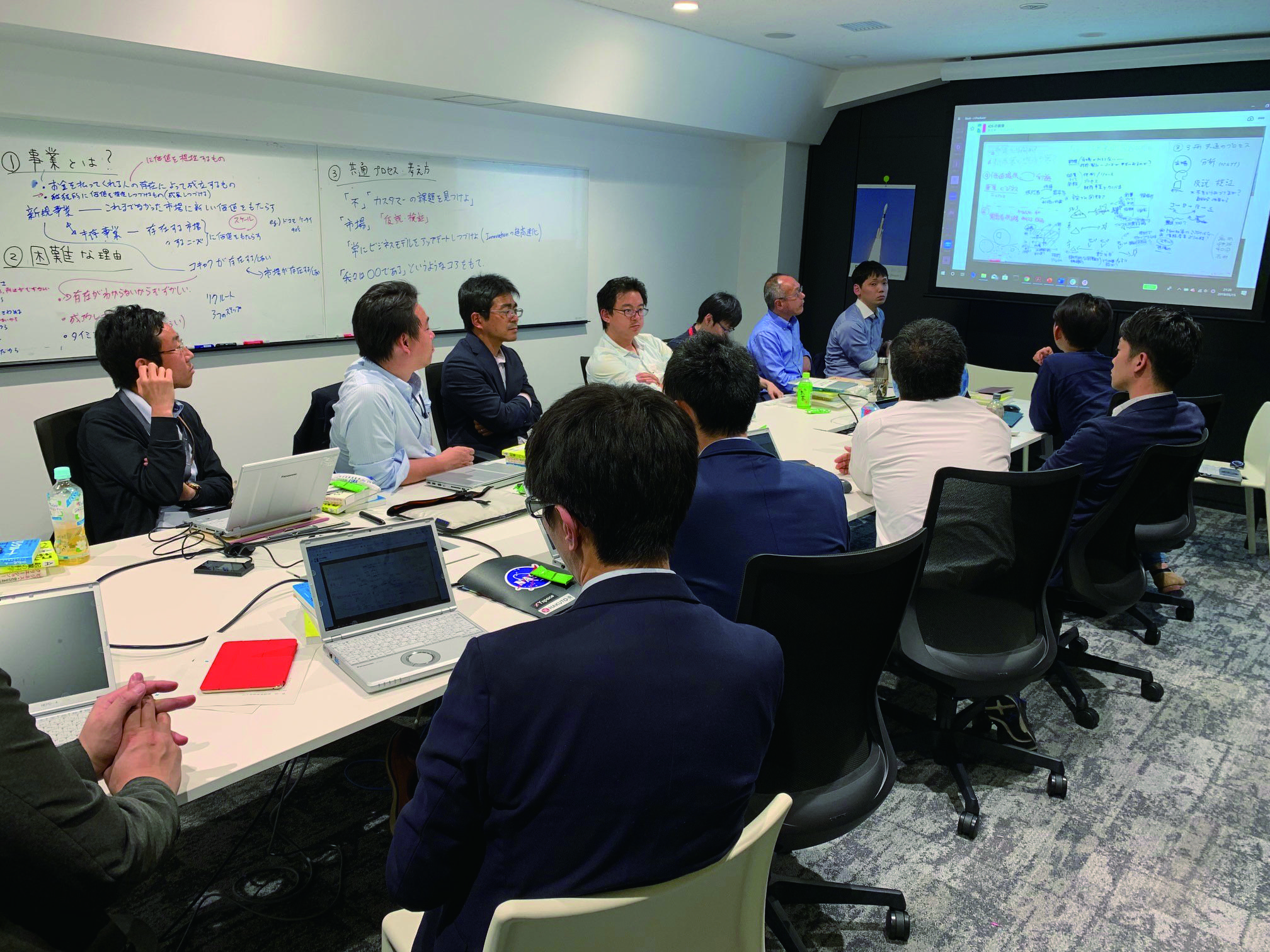Business Development and Industrial Relations Department
About 20 projects are currently in progress
JAXA and Private Businesses are Co-Creating the Space Business
Collaborating with private companies, beyond different business areas
The aim of the Business Development and Industrial Relations Department is to make space business a major industry in Japan, and to have projects and technologies related to space become something that is commonly found in our everyday life. The department conducts various efforts that would lead to expanding our usage of space and to help promote the space industry.
One of such efforts is the research and development program that was launched in May 2018--the space innovation partnership called J-SPARC. Private businesses with ideas on space business join forces with JAXA in bringing together human resources and funds to collaborate on creating new concepts, from the time of the planning stage. This is an open innovation program based on a system of partnership, where necessary technological developments and verifications are conducted with the aim of giving birth to new business opportunities.
Now that one year has passed since the launch of this program, there are about 20 projects currently in progress. What is unique about this program is that its projects cover a diverse range of genres. It seeks to achieve technological innovations without being limited to those related to space--it spans not only the development of small rockets, but also the creation of a space food market, as well as VR to experience what it is like in space, and educational programs that make use of the training programs that astronauts go through. The Producer, Yuta Kikuchi, says, "Until now, space exploration focused on space development projects led by the government. But now, times have changed."
"Today, space business is one of the areas that companies consider when they want to launch a new business. We have come to a point in time when people who are in charge of new businesses are asked by their superiors to come up with good business ideas related to space, because that is where the excitement is. We wish to contribute to many different areas by working not only with companies that have been in the space business until now, but also with those who wish to make a new entry into the space industry."

A year with a sense of achievements Signs of change seen in our business partners and JAXA staff
A group of ten Producers, including Kikuchi, are tasked with creating projects together with various partners spanning venture companies to major corporations. The expertise of these Producers cover a wide range of areas, such as the use of satellite data, transportation, exploration, and robotics, and the responsible Producer for each project is determined in accordance to its details. Shinichi Takata, who is also a Producer, says that what is important in proceeding with the projects is to be attentive of the projects' needs and to place importance on having dialogues.
Takata continues, "We begin to find out what our partners want from JAXA by repeatedly talking with one another. We need to make sure that what our partners want from us meets what we can actually provide, so we are careful to hold detailed discussions before officially forming a partnership."
So far, J-SPARC has received more than 150 inquiries. The program is constantly accepting proposals, and forms partnerships after having discussions. Takata says that he feels a certain sense of achievement in the one year since the program was launched.
"Our efforts to overcome various obstacles and co-create with passionate partners have had the effect of attracting other businesses, bringing in new funds and human resources. We, the JAXA staff, are also able to gain knowledge about new technologies, so it's beginning to gradually bring a change in the ways we work and the attitude in which we perform our duties."
In this era when the space business is accelerating rapidly on a global scale, the expectations that the business world has toward JAXA are increasing every year. J-SPARC, which collaborates with private businesses in coming up with technologies and ideas in order to create innovations, is also a new challenge for JAXA. Numerous new space businesses continue to be born, every day, backed by a strong sense of passion.

Profile
Yuta Kikuchi
J-SPARC Producer
Business Development and Industrial Relations Department

Shinichi Takata
J-SPARC Producer
Business Development and Industrial Relations Department

- Home>
- Global Activity>
- Public Relations>
- JAXA’s>
- JAXA's No.77>
- About 20 projects are currently in progress JAXA and Private Businesses are Co-Creating the Space Business